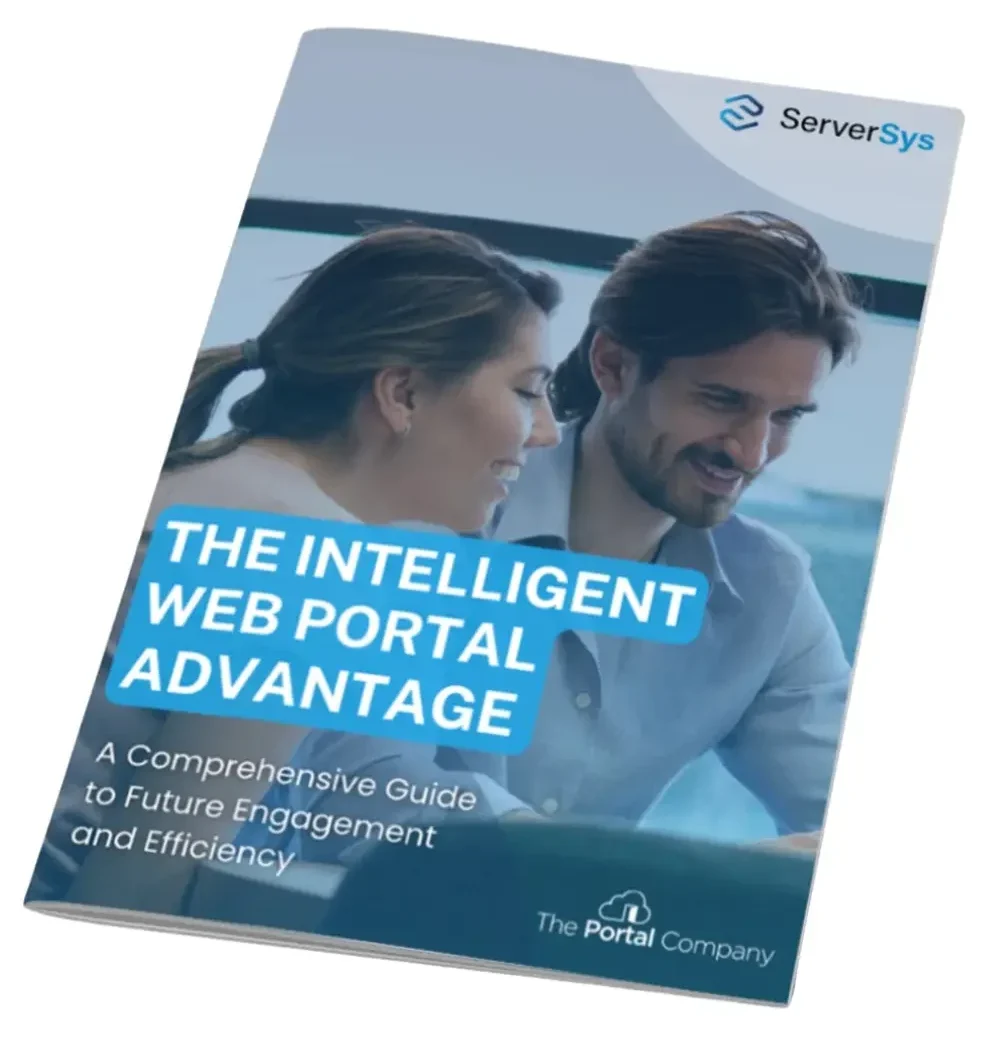Dynamics 365 Integrated Portals
We specialise in developing data-powered websites that offer connected experiences for customers, partners and other stakeholders.
We’ll collaborate with you to design and quickly launch a custom Microsoft portal using Power Pages or Azure. Our solution will integrate with your Dynamics 365 system and relevant third-party data sources to ensure uninterrupted self-service.
Visit theportalcompany.com, our dedicated business delivering Microsoft web portal solutions.
Discover how we can help you improve communications and boost efficiency with a custom portal.
Our Dynamics 365 Web Portals Include
Our websites enable companies to provide their customers with convenient 24/7 access to address common requests.
An effective portal will help you drive loyalty through on-demand, efficient service. For example, resources can be centralised on a knowledge base, which can be augmented with a chatbot that aids customers in quickly finding answers.
Additional features like account management and support ticketing help deflect frequent requests to boost productivity.
Visit The Portal Company to learn more about how our portals increase customer satisfaction and simplify your operations.
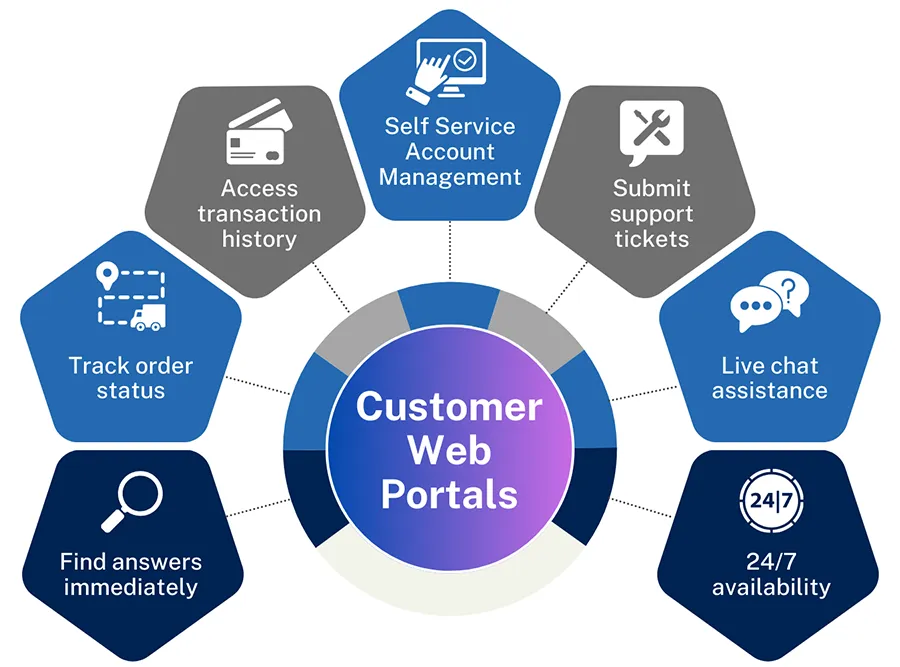
We will assist you in deploying a custom portal that is a central hub for your members to manage their subscriptions, make connections, and access helpful resources.
Our portals include self-service options for renewal payments, updating member profiles, event registrations, forum discussions, and more.
With our extensive expertise in portal integrations, we’ll create a custom solution tailored to your specific needs.
Please visit our dedicated website, The Portal Company, to learn more about how you can increase member engagement and reduce administrative overhead.
Further information: How to Amplify Member Engagement Using Modern Web Portals
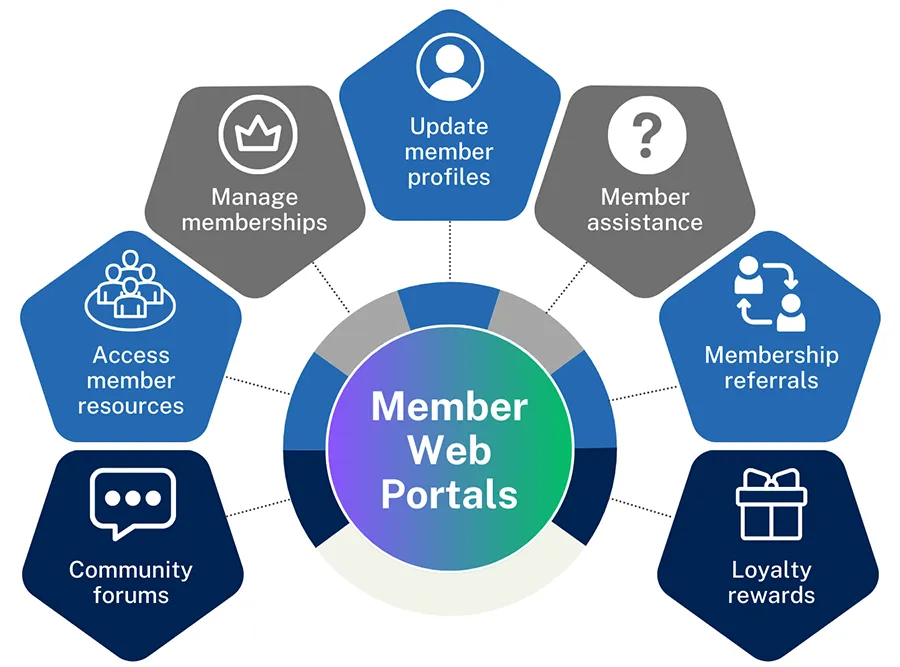
Web portals centralise communications to help businesses strengthen partner relationships.
We develop websites that enable partners to find information, access resources and request support. These solutions can also improve collaboration with the online sharing of leads and opportunities to boost revenue.
Visit The Portal Company to learn more about how we implement intuitive websites to improve partner productivity and drive sales growth.
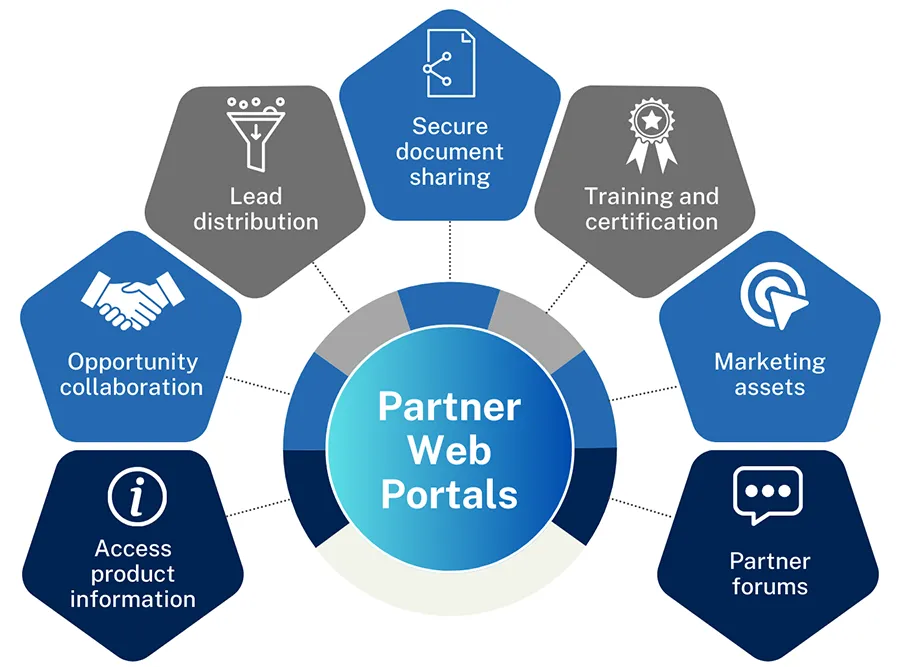
We build portals that provide employees online access to tools, resources, and information.
Our portals are designed to reduce HR administration while enabling employees to manage their data and preferences conveniently.
We will customise your internal portal as a centralised platform for company news, knowledge, and training resources.
Visit our theportalcompany.com to learn how our portal solutions improve collaboration and employee engagement.
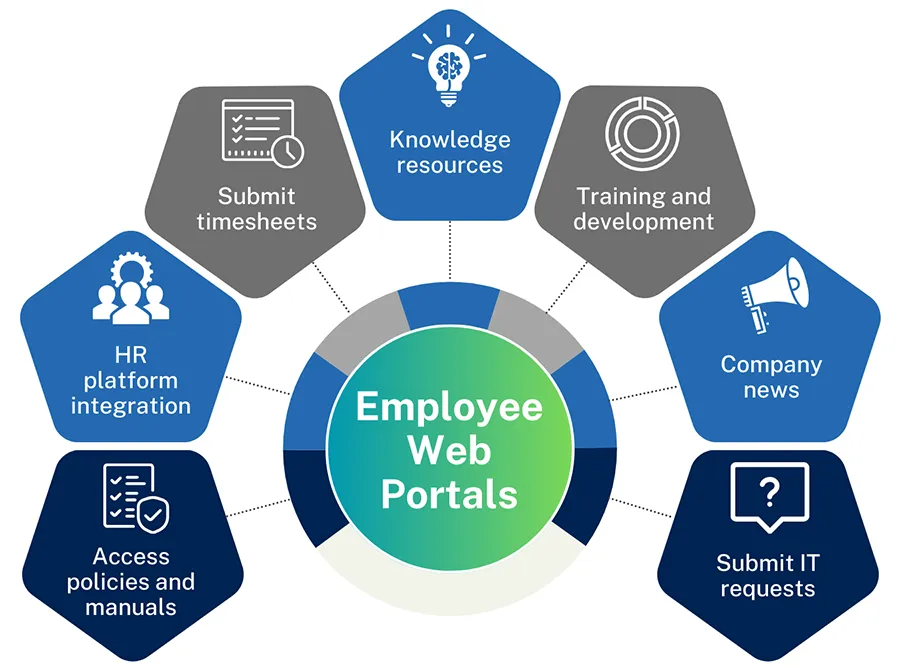
Replace manual data entry with intelligent web forms that sync directly to Dynamics 365 and adapt to user responses.
Capture complete, accurate information through conditional logic, pre-populated fields, and validation rules while triggering automated workflows instantly.
Our solutions handle complex scenarios from employee screening to compliance reporting, ensuring data flows into your business processes.
Visit our dedicated website, The Portal Company, to explore how you can streamline data capture of assessments, questionnaires, applications and other forms.
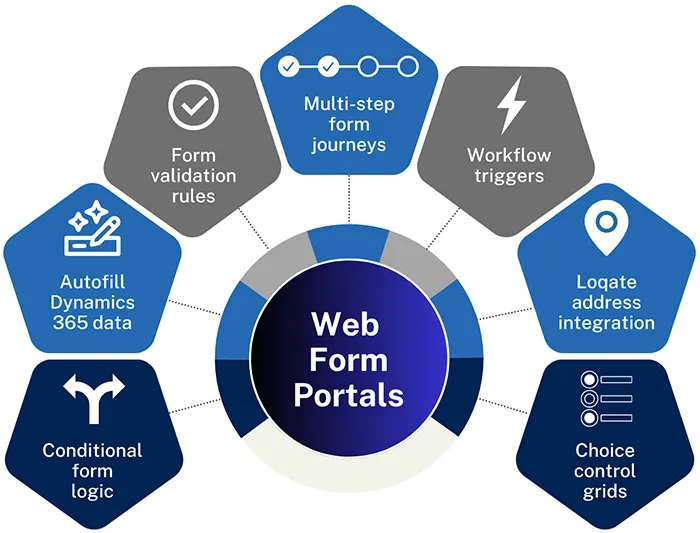
Web Portal Outcomes We Deliver
- Scalable websites built with a clear understanding of your organisation, processes, objectives, and data.
- Increase operational efficiency through process automation and self-service capabilities.
- Improved experiences with personalised information and resources accessible on-demand.
- Integrations with Dynamics 365 and your core systems, such as payment processing, ERP and third-party data providers.
- Secure access using native Azure and Microsoft Platform controls, including multi-factor authentication and custom role permissions.
- Ongoing portal innovation through regular engagement and updates.
- Capture Data through Dynamics 365 Web Form Integration, enabling people to automatically submit complex form responses.
Demonstrating Web Portals
Video Transcript
What more could your team accomplish if they spent less time on repetitive tasks like updating CRM record forms?
One effective way to boost efficiency by minimising manual data entry is through data-driven web portals. By streamlining business processes, these websites enable customers and other individuals to independently manage their interactions with an organisation.
At ServerSys, we specialise in developing process-centric websites that enable people to complete routine tasks.
Microsoft Power Pages is a popular solution for these requirements as it offers pre-built templates to handle repeatable processes.
For example, you can start with a portal template that will handle the scheduling of appointments, meetings and jobs.
Another prebuilt, customisable template is designed for websites that will handle registrations.
There are also themed portal templates. This includes one for customer self-service websites, and here, there is one for partners to help increase engagement and collaboration.
Let’s now examine a portal built using a Power Page template to process applications.
There are various situations where organisations manage different types of applications. These could include permits, volunteer registrations, grant funding requests, or award nominations.
Using this template, application web forms like this can be quickly customised using drag-and-drop tools to guide applicants through each step of the process.
Additional components can be included to collect further information from applicants. For example, this form has been adapted to allow people to upload documentation that supports a health insurance application.
Power Pages integrates natively with Dynamics 365 and Power Apps.
This means that data from web forms and other portal actions automatically flow into your database.
This seamless processing eliminates time spent importing or manually entering the same information into CRM. Instead, submitted applications and other routine workflows can be swiftly progressed to improve efficiency and transparency, which can also contribute to more detailed profiles and personalised interactions.
Because Power Pages is built on the Microsoft platform, portal actions can drive workflow automation using Power Automate.
In this example, a flow is triggered when a health insurance application is posted. This looks at the relevant database table, and when a record is added following a form post, the flow is configured to send this email acknowledgement.
A similar notification can be triggered to alert a team member when a new application is received which prompt them to take action.
In addition to reducing admin burdens, integrated portals help organisations maintain compliance.
For example, there may be a need to capture a formal signed agreement.
One of the portals we’ve developed is for a club that supports the next generation of sailors.
Because their activities involve children, they routinely need to collect completed parental consent forms. Previously, this involved a rush of emails when forms were sent and received, making it time-consuming to manage this process.
By using this portal, completed forms are easily shared with parents and guardians. Once a signed agreement is uploaded, it can synchronise with SharePoint for centralised document management. Further automation can be enabled by integrating DocuSign or similar document-signing solutions.
In this membership portal, individuals can update their contact details and other information. With access to these self-service tools, it eases the pressure on service teams by allowing individuals to complete actions themselves.
The data presented here is published from Dynamics 365, and any changes saved by an authenticated portal user will be automatically written back to the database.
On any self-service website, organisations determine what data is published and what permissions each type of portal user should have. We develop custom portals that use the same security profiles as Dynamics 365, so you can precisely control who can access information and make changes.
Within a member portal, individuals can manage their subscriptions directly. In this example, a user with a free account is logged in. Here, they can review the available membership plans and select the option that best suits their needs.
Our custom portals can integrate with payment services like Stripe to streamline transaction processing and allow upgraded members to access benefits quickly.
Behind the scenes, automated processes update CRM and accounting systems with these transactions and notify service and finance teams accordingly.
Self-service portals also enable customers and other users to find answers online, helping to deflect potential service requests, which reduces the demands on service reps.
Since Power Pages integrates with Dynamics 365, it allows for the sharing of unified knowledge resources. The same content that’s utilised by service teams can be made accessible to external users through a portal that includes answers to frequently asked questions.
In this example, an article is found that helps with a delivery issue.
If answers can’t be found, customers can request help by creating a service ticket.
After typing in a few words to describe the issue, the portal will promote contextual knowledge articles. This is another example of how some requests can be deflected, especially if a customer hadn’t already checked the knowledge library.
In this instance, the recommended article doesn’t specifically address my query, so I’ll proceed with a service request.
This portal connects to Dynamics 365 Customer Service, creating a new case and routing it through a defined case management workflow. This process will determine who is assigned to the case and which service level agreement applies.
Additional automation often includes triggering a customer email to confirm a case has been opened, which includes the unique reference number.
Once that request is made, customers can see at a glance the status of open service tickets and view a history of their previously resolved cases within the portal interface.
In addition to websites for consumers, we also develop portals for B2B relationships. In these instances, authorised users can access related company information.
Additional privileges may include allowing authorised people to manage access permissions for their colleagues directly. Using these capabilities, they can self-administrate by adding, updating or removing portal users related to their organisation.
In addition to contact information, knowledge articles and case details, you can publish any standard or custom entity from Dynamics 365 and other data sources within a custom portal.
In this example, a user can view the recent orders on their account.
This view also includes an AI-generated summary. These AI insights dynamically highlight information displayed in lists on portal pages and include visualisations to help people interpret data, making it more accessible.
Now, let’s explore how web portals can enhance event management to improve efficiency and benefit participants.
This is a customised platform that we’ve developed for sailing clubs to handle each aspect of their race events and regattas.
These organisations must comply with stringent safety standards; therefore, race entrants are required to complete checklists detailing their boats, crew, and other essential items.
The administration this involves can lead to convoluted registrations and time-consuming check-ins for events, which can detract from people’s experiences.
This is where a portal can transform processes to improve these outcomes. From this dashboard, a race entrant can view their outstanding actions.
One of these items prompts them to upload a certificate to comply with race regulations.
Each entry will also involve one or more checklists. Within each checklist, entrants are prompted to provide the mandatory information.
Once a checklist is complete, the entry can be submitted for approval. To minimise manual admin, our solutions include workflows that can automatically approve checklists if the answers match an organisation’s entry rules.
When human oversight is necessary, the structured online checklist process reduces the burden on event officials since all information about each entry is consolidated in one place.
Once each entry is approved or declined, automated emails will be sent to entrants. Race officials can also add annotations, such as notes and reminders, which can simplify steps during the event check-in.
Earlier, we saw how portals provide access to knowledge resources. Using artificial intelligence, this experience can be further enhanced.
For example, AI can pull information from organisational resources to answer user questions.
Intelligent bots can be deployed that interpret queries, understand context and provide accurate, human-like responses.
To demonstrate, we’ll continue in our yacht racing management portal.
When racing incidents occur, competitors may want to lodge a protest. In other instances, they may wish to query a scoring decision. Before deciding whether to request a hearing, they’ll want to consider the official rules.
Few people have memorised the entire set of racing rules, so to minimise the effort of referring directly to this lengthy document, an AI bot is trained to answer questions about official rules. Competitors can use this bot to quickly check how the rules may be applied in the context of their specific situation, which helps them decide whether to pursue a matter.
Here, we’ll describe an incident during a race and ask the bot to interpret it based on the official racing rules. In this scenario, the response received suggests the competitor would have justification for making a formal protest to the race officials.
These are just some examples of how web portals help organisations increase efficiency, ensure compliance and boost engagement.
Through our dedicated practice, The Portal Company, we build custom websites that provide personalised, intelligent experiences.
Whether you want to implement a website that connects with Dynamics 365 or a highly customised portal, please get in touch to discuss how we can help you launch a scalable data-driven website that achieves your goals.
We are proud to work with...
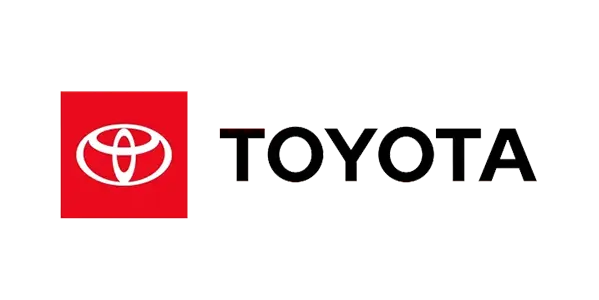
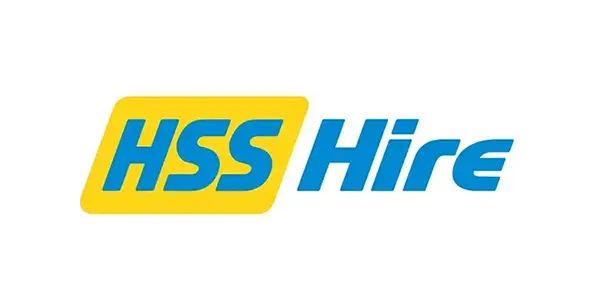

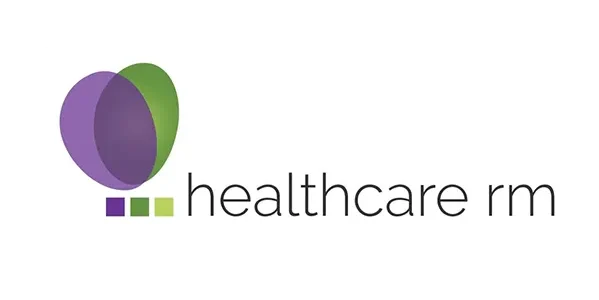
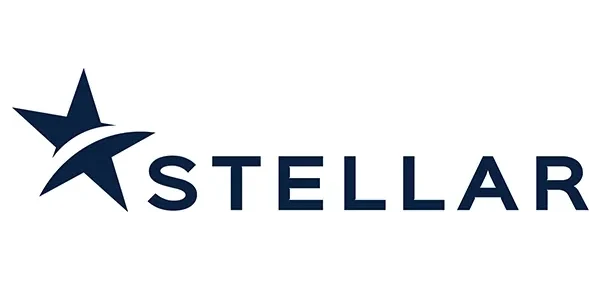
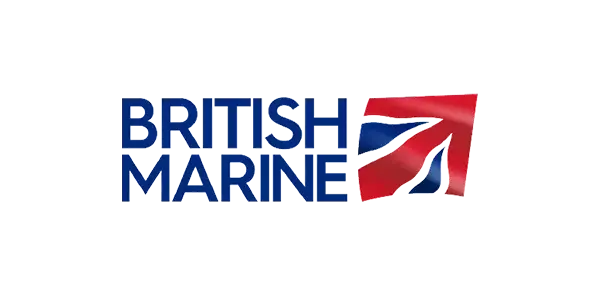
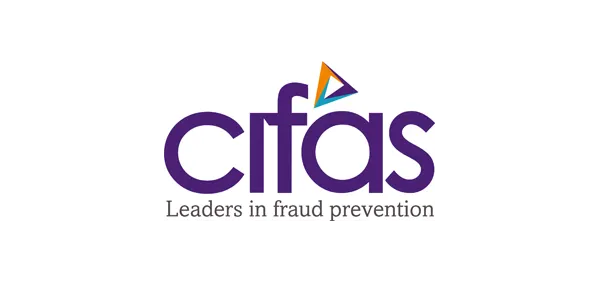

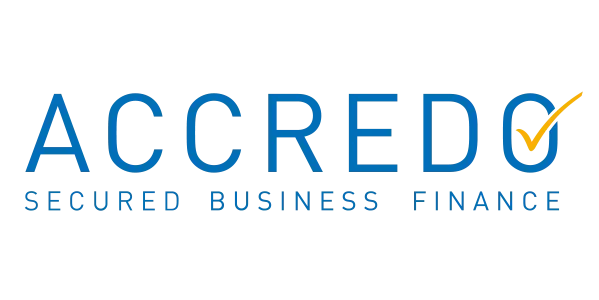
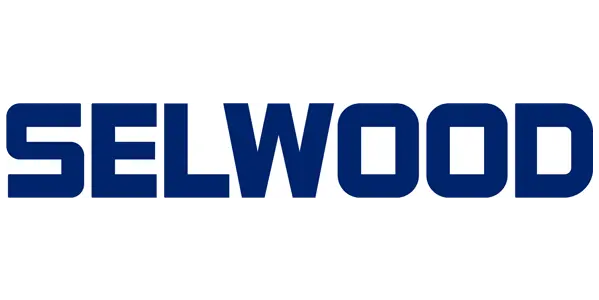


Customer Quotes
What we offer
Expertise in building customised portals using Microsoft technology.
Proficiency in configuring complex portal integrations across Microsoft apps and third-party technologies.
Proven agile methodology for swift development and website deployment.
Broad industry experience in delivering portals for organisations in many sectors.
Consulting approach focused on achieving your strategic goals for web portals and stakeholder engagement.
Continuing support and consultancy to make incremental portal improvements.
Web Portals: FAQs
Let’s Talk
Schedule a free initial consultation today with our portal experts. Together we will map out an effective solution fitted to your vision that integrates with your Dynamics 365 system.
Please complete the form below and one of our consultants will be in touch.
